The soft drinks sales figures are in… and they’re good. A 2% rise in sales last year took the category over £10bn for the first time. Britvic’s Soft Drinks Review 2014 says the “spectacular summer”, coupled with products that were versatile and relevant, led to this sales success.
Grocery and convenience sales accounted for £7.5bn of that £10.3bn and within that grocery took the lion’s share (£5.6bn), but convenience saw the strongest growth, with both value and volume sales rising by more than 5%. Energy drinks maintained their lead over cola, worth £491m (+7%) versus cola’s £453m (+4%), while next came fruit carbonates, worth £180m (+2.5%), then juice drinks worth £166m (+15%), followed by plain water at £157m (+12%).
Coconut water hits the mainstream
Once the preserve of actors and pop stars, coconut water is available almost everywhere nowadays, and therefore drunk by anyone and everyone.
Nielsen research reveals that coconut water sales have doubled in the past two years because of its association with healthy living, and as such the category is now worth £5m.
Vita Coco says its convenience store sales grew by more than 95% last year with sales surprisingly strong outside of London, where the brand was initially established.
The brand has launched a kids’ variant in four x 180ml Tetra wedge multipacks in two flavours: apple & blackcurrant; and mango & pineapple.
Chi is also reporting strong sales, which are likely to be boosted further thanks to new additions of coconut water & tropical fruits, & pineapple, & mango. It has also introduced two dairy-free coconut milks: Chi chocolate and Chi espresso.
Meanwhile, the Levi Roots brand has a new coconut water ‘n’ lime still drink, available in a 500ml £1 pricemarked pack. And Zico Coconut Water has just added a new not-from-concentrate 1ltr format with a rrp of £3.39.
Steve Charlton, manager at Budgens Harleston in Norfolk, is hoping for good weather this summer as he says that when it’s warm soft drinks sales typically rise by about 10%.
Over the past six months, his best-sellers by volume have been take-home carbonates (1-2ltr size) followed by 500ml carbonates, squashes, then fruit juice. Take-home packs of water come next, followed by mixers.
In take-home carbonates, Steve’s best-sellers are: Pepsi Max 2ltr; Coca-Cola 1.25ltr, 1.75ltr and 2ltr; Schweppes lemonade 2ltr; and R Whites lemonade 2ltr; then Diet Pepsi and Pepsi 2ltr. In impulse, it’s Coke and Diet Coke 500ml as well as Dr Pepper and own brand 500ml, then Pepsi Max 600ml and Diet Coke 330ml.
Robinsons is Steve’s big seller across squash; different flavours, but all no-added-sugar variants. In fruit juice, it’s the own brand Value orange and apple juice that sells, and in water it’s own brand again that does best.
Of course, new soft drinks are being launched all the time, but Steve says his store is allocated any new lines by head office. “Generally, this will be accompanied by a freestanding display unit to advertise the product. After stock is run down we will merchandise the product into the fixture with the other related lines. Our head office will occasionally issue a new planogram to advise us where to put the new products in the fixture.”
He adds that of the new lines he’s received of late, Brazilian-themed Lucozade packs are selling well.
All the major suppliers send reps into the Budgens store, about every two months. “They inform us of new product launches and promotions. This is helpful as we can plan for these in advance. They also assist and take feedback from us about any issues we have with slow-selling lines.
“I’m happy with their current level of input. It becomes difficult to manage when too many different reps are trying to influence too much of the business. Ultimately, we know our market and what works and what doesn’t. It’s good just to see them once in a while for a general discussion and feedback.”
It’s the Lucozade rep who Akbal Cheema from Costcutter Bloxwich, West Midlands, sees the most, and he says their visits are handy. “They tell us about new lines and find out why we’re not stocking a particular product. They sometimes carry stock that’s on offer, too.
“But there’s only so much you can stock; you have to pick and choose and decide if you have room for something and whether you can cut down on facings of other products to accommodate it. I like to try new soft drinks, but not every single one. If it’s new and if it’s pricemarked, I’d definitely consider it. It is a case of trial and error, but I tend to know my customers and what they like.”
Coca-Cola’s Share a Coke campaign last year was a big hit with consumers, who were keen to find their name on a bottle, but Akbal steered clear. “I heard how consumers were messing up shelves trying to find their name, so decided to give it a miss,” he says.
However, one Coke initiative that’s been a big hit with many retailers is its new BevTrac spring-loaded merchandising system, designed to drive on-the-go soft drinks sales.
The system offers a number of benefits that include:
- helping product lanes always ‘look full’ due to the spring-loaded ‘pusher’ action
- making products easier for shoppers to see, select and purchase
- increasing product standout by using point of sale and labelling to improve merchandising and maintain visibility
- making the fixture easier to face up and re-stock by using spring-loaded lanes to keep products in order
- reducing out-of-stocks by featuring ‘call to action’ POS material that prompts retailers to re-stock when a lane is empty.
Coca-Cola Enterprises (CCE) says the equipment has been designed with the retailer’s needs in mind - helping them to maintain stock levels and visibility of their soft drinks range, but also helping to drive extra soft drinks sales. When installed in Ireland, BevTrac resulted in an 8.5% volume uplift in store, but some UK retailers are seeing even greater success.
Take Allan Robertson, manager of Londis Craigmillar in Edinburgh. As part of a major merchandising overhaul, the store was provided with BevTrac. “Within eight weeks of having it, drinks sales had gone up by 45%,” he recalls. “The beauty of the system is that it means soft drinks are always faced up. We have to allocate 51% of space to Coke’s products, but that’s not a problem as their lines are big sellers. In fact, Coke is our best-seller.”
As part of the change around in store, they also increased the space for take-home carbonates, particularly large bottles of water. “We had a very limited range of large bottles of water - just two different varieties really. Now we’ve got seven or eight including plain and flavoured,” Allan says.
It all sounds good, so let’s see what Britvic does to engage more with convenience retailers.
Soft options for grown-ups
We might call the likes of Shloer an ‘adult soft drink’, but consumers don’t refer to it as such. Instead, they see it as a ‘sociable’ drink that allows them to be part of a social occasion without having to drink alcohol.
The brand is hugely popular; it reaches more households than any other adult soft drink. Typical consumers are ‘Helen’ and ‘Sue’ says Amanda Grabham, head of brand marketing for Shloer. “Helen is in her mid-to-late 30s with a young family, while Sue is a grandma, who is always having the family around. These are our typical consumers, who are looking for something different to a cola or a juice or some water.”
She adds that pregnant women are another key consumer group.
Grabham says the brand’s challenge is to get convenience retailers to recognise the opportunity for adult soft drinks at social occasions because such events are a big reason why consumers shop in convenience stores.
Shloer recently linked up with Pringles via Palmer & Harvey, offering consumers a bottle of the drink and a tube of the snacks for just £3. Grabham says the deal was on a small scale, but worked well, and she’s keen to do more product tie-ups.
Being a Scottish store, Allan says Irn Bru sells very well and they have a branded fridge; they also carry all of AG Barr’s lines.
Another Londis retailer, Mike Roderick from Liverpool, had BevTrac installed last October. He says: “BevTrac has benefited both staff and customers. The system has helped to increase our turnover by presenting products in a clearer and more ordered way, which customers have recognised and commented on.
“Staff have found it easier to face up products and keep shelves well stocked, which has directly helped to grow our sales. The uplift was almost instant with some products, such as Monster Energy and Glaceau Vitaminwater, seeing up to a 70% increase in sales.
“Products stand out much more clearly and when promotions go live BevTrac offers us a great way to present branded POS material, which grabs shoppers’ attention and helps to encourage them to make a purchase.
“We’ve added to our soft drinks range since using BevTrac and I’d encourage retailers to give the system a go to see the benefits for themselves.”
Any retailers interested in BevTrac should call 01733 284988 for further information. They’ll be visited by a CCE representative to assess the viability of installing the system in their store.
Sugar or rather the sugar content of certain food and drink has been in the news a lot lately and quite often it’s the poor old can of Coke that’s rolled out to illustrate just how much sugar is contained within a fizzy drink. But, of course, there are alternatives not least of all Diet Coke and Coke Zero.
Steve at Budgens Harleston believes the mindset of the consumer has moved towards ‘healthier’ options such as diet or zero sugar drinks. “Pepsi Max and Diet Pepsi now outsells Pepsi in the take-home carbonates category,” he says.
But not everyone likes the taste of artificial sweeteners, which is where Stevia comes in. It has just been added to Fanta for the first time, to its new mid-calorie special edition raspberry & passionfruit flavour. And it’s also available in Tropicana’s Trop 50 range.
The Del Monte brand has been using Stevia in its Naturally Light range since 2012. As such, these drinks have 50% fewer calories than pure juice or added sugar juice drinks. A new orange flavour was added to the range in March. As with the other varieties in the range - mango & papaya, pineapple & lime and ruby fruits - each 250ml glass contains just 50-63 calories. All are packed with vitamins, providing 100% of the recommended daily allowance (RDA) of vitamin C and 50% of the RDA of vitamins B, E and Selenium.
Price winners
Pricemarked packs (PMPs) have helped drive value within the total soft drinks category compared with plain packs. So says Nielsen, whose research shows that within the sports and energy category, in particular, PMPs have driven 36.4% value growth compared with a standard straight pack as shoppers are on the lookout for good value products.
But it’s not all about energy drinks. Vimto Soft Drinks marketing manager Emma Hunt says that within the Vimto range alone, PMPs account for more than a 70% share of both the ready-to-drink and carbonates sales for the brand, proving their appeal to shoppers.
But it’s not just shoppers who look out for PMPs; many retailers like them, too. Akbal Cheema from Costcutter in Bloxwich, West Midlands, is a big fan. “Yes, margins are a bit better on plain packs, but if you measure sales of PMPs versus non-pricemarked, for every three cases of pricemarked, we’d only sell one of non-pricemarked, so the volume is there.
“Coke 500ml is now pricemarked at £1, so that’s selling well. Previously, it was pricemarked at £1.25, but selling at ‘2 for £2’.
“The 250ml size is going well, but we only carry it in the regular Coke - not Diet or Zero. It was pricemarked at 45p but has just gone up to 49p - but it’s still popular because a 330ml can is 65p.”
But Steve Charlton, manager at Budgens Harleston in Norfolk, says that as a general rule they don’t stock much in the way of PMPs. “Our promotional strategy heavily features multibuy offers and deep-cut discounts so I don’t feel the need for PMPs as well. We are a promotion-led store so it wouldn’t be beneficial to flood the category with too many pricemarked offers alongside our usual promotions.”
But you can’t get much healthier than water. Scott Dickson, senior brand manager at the Highland Spring Group, says: “With growth of 18.5% in the past 52 weeks (IRI, convenience data to February 1, 2014), it is evident that naturally-sourced bottled water - the only product on the shelf with no calories, no sugar, no preservatives and no additives - is benefiting from the current healthy living trend.
“Health is a major driver of product choice and a significant consideration for shoppers when choosing between beverages. Even in the current economic climate, there is evidence that many families are making it a priority to ensure their children are eating healthily which, of course, includes being careful with the drinks they are given.”
And there’s more growth expected, with Zenith International estimating that the water market will increase in volume by 3.4% (76 million litres) this year, making bottled water one of the leading growth categories in soft drinks.
Growth is on the cards for the soft drinks market as a whole. It is estimated that it will increase by 3.7% by 2020, but Britvic reckons that by working more in partnership with retailers it can increase that growth to 6.4%.
Its Soft Drinks Vision report highlights £2.4bn-worth of untapped soft drinks sales. It believes these sales can be realised by 2020 through making soft drinks more relevant for every daily occasion, by understanding and meeting consumer needs, and by engaging shoppers at the point of purchase. It looked at 33,000 people during 125,000 consumption and 40,000 purchase occasions and as a result came up with a raft of ideas, including making soft drinks more appealing to ‘disengaged’ adults; increasing the relevance of soft drinks throughout the year, not just when it’s hot; and disrupting shoppers who are on autopilot and encouraging them to purchase an extra drink.
It all sounds good, so let’s see what Britvic does to engage more with convenience retailers.
In brief
Pure life ready for c-stores
Nestlé Pure Life, the biggest global water brand (Zenith data), is now available to c-stores in 50cl and 1ltr sports cap bottles.
World Cup giveaway
Coca-Cola will be giving away one million limited-edition footballs in the run up to the 2014 FIFA World Cup through a Win a Ball on pack promotion.
Red Bull cuts the calories
Red Bull added to its portfolio earlier this year with Red Bull Zero Calories, a functional energy drink without the calories. It comes in a four-pack and 250ml pricemarked and plain cans.
Cawston Press in cans
Cawston Press is moving into canned drinks with the launch of rhubarb and cloudy apple 330ml cans with an rrp of 99p.
Introducing the Vimtoad
Vimto announced a raft of news last month including a new focus on mums and the introduction of the Vimtoad as the Croaksperson for the brand. An app featuring the toad is now live.
Volvic adds trio of new variants
Volvic has three new lines: special edition coco-pineapple joins Touch of Fruit; Juiced has a new special-edition perfectly peachy; while a 1.5ltr sparkling pack joins the natural mineral water portfolio.
Online tips
For merchandising advice on soft drinks, check out Highland Spring’s my softdrinksguide.com. The firm says that following some of its simple guidelines reduces customer confusion and makes it quicker and easier for shoppers to find what they want.
Gerber sampling campaign
Refresco Gerber has embarked on a major sampling campaign for Del Monte, Umbongo, Fruit Burst and Sunpride. From now until November, samples and vouchers will be handed out at 13 events across the country, including the BBC Good Food Summer Show, Badminton Horse Trials, The Great Yorkshire Show, the South of England Show and Car Fest. The brands are expected be seen by more than 1.7 million people.
Asian favourite
Rubicon is not only the UK’s number one exotic juice drink (Nielsen) it is, according to AG Barr, the number one soft drink for British Asian consumers.
Support for the brand this year includes a 30-second ad as part of its biggest ever Mango Week (May 5-11) celebration. The commercial emphasises the role that Rubicon plays among British Asian families. It shows the drink being taken from the fridge and enjoyed across a variety of family occasions.
The campaign features two bursts over a seven-month period and aims to heighten consumer awareness during key sales periods such as Eid (July), the Mela festivals (July-September) and Diwali (October).In addition to airing on TV, the ad will be screened at cinemas.
Source
Tracy West




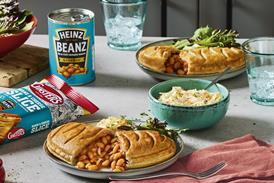
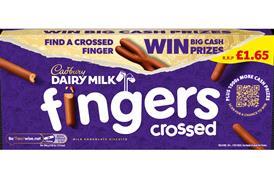
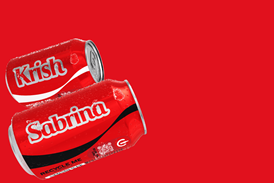
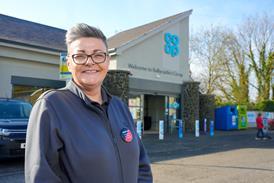
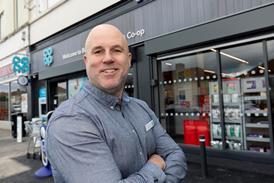
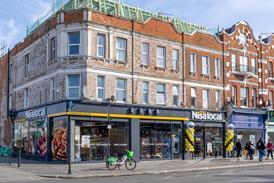
![WG-4003[58]](https://d2dyh47stel7w4.cloudfront.net/Pictures/274x183/4/5/1/353451_wg400358_6083.jpg)

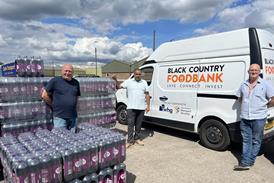



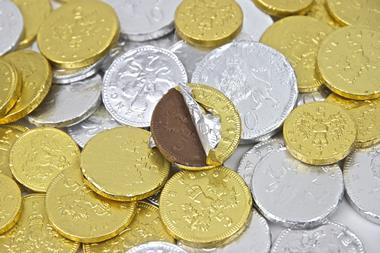
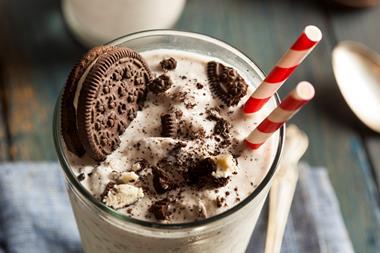

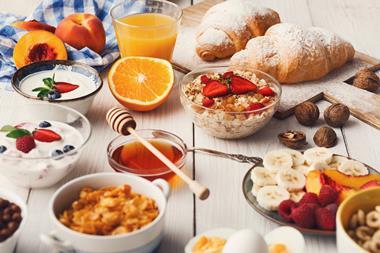
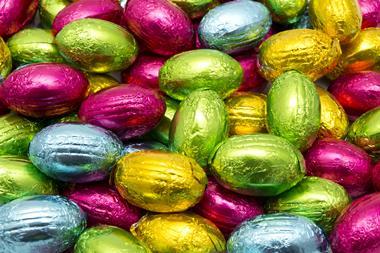
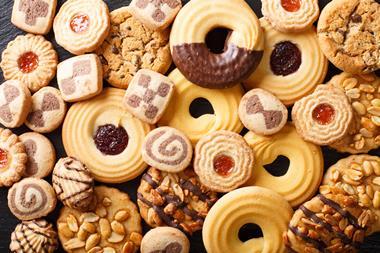
No comments yet